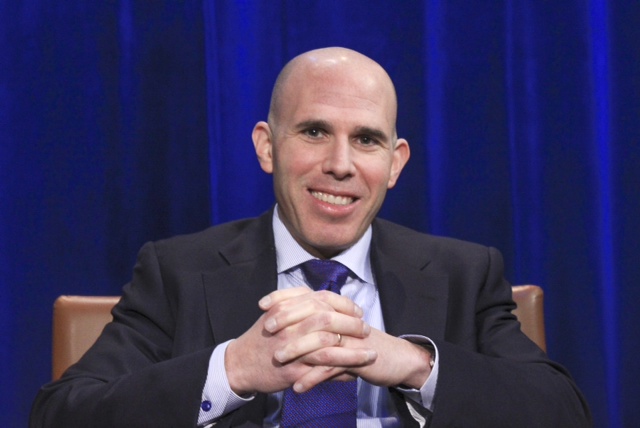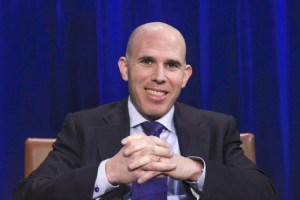Rechler: 3 World Trade Center Wrangling Is ‘Healthy’
By Lauren Elkies Schram and Tobias Salinger June 4, 2014 8:00 am
reprints

The Port Authority of New York & New Jersey’s fracas over construction financing for 3 World Trade Center has been a positive development in the scrutinized public agency’s quest for greater transparency, the vice chairman of the Port’s board claims.
RXR Realty CEO Scott Rechler, who has led the agency’s board of commissioners since former Chairman David Samson resigned over the fallout from the George Washington Bridge scandal in March, praised the three-month debate over the Port’s potential backing of a loan that would help Silverstein Properties finish 3 World Trade Center.
“I’ve encouraged constructive dialogue between the commissioners,” Mr. Rechler, who was appointed by Governor Andrew Cuomo in June 2011, told Commercial Observer. “My view in life is that this is healthy.”
The bi-state agency, which has often been accused of being subservient to the two governors who each appoint six unpaid commissioners to the board, is acting independently of Mr. Cuomo and New Jersey Governor Chris Christie during the negotiations over 3 World Trade Center, according to Mr. Rechler.
“This is a board decision,” Mr. Rechler said. “The governors have made it a point not to influence the commissioners as it relates to 3 World Trade Center, and to use our judgment to do what is best for the Port and the region.” Spokespeople for the two governors didn’t respond to requests for comment.
Mr. Rechler has been one of the main proponents of restructuring the 2010 agreement with Silverstein Properties over the 80-story, $2.3 billion tower by fulfilling World Trade Center developer Larry Silverstein’s request to guarantee construction loans on the currently-stalled project. But he’s failed to win over commissioners like Kenneth Lipper who have been calling for Mr. Silverstein to amass more private capital in order to renegotiate the prior arrangement.
“This transparency—which I’m told that it’s the first time in Port Authority history that such an open debate has taken place—has made a transformative change at the Port Authority,” said Mr. Lipper at the board’s May 28 meeting. “This type of openness, this type of public interaction will now be the rule instead of the once-a-century exception.”
But government transparency advocates downplayed any talk of advances stemming from the debate.
John Kaehny, executive director of Reinvent Albany, which works to achieve an open, accountable New York State government, said the Port has a long way to go in clearing up potential conflicts of interest, debt financing and freedom of information requests.
“From the perspective of people who look at executive agency transparency and public authority transparency, it looks like they’ve progressed from terrible to barely acceptable,” Mr. Kaehny said. “There are just so many questions about how the Port Authority works.”
As the Port debated the construction financing last week, the New York State Senate unanimously passed a bill that would apply open records and meetings laws to the Port. Lawmakers were set to introduce a separate Port reform bill this past Friday before they canceled their news conference because the bill wasn’t ready, Bloomberg News reported.



